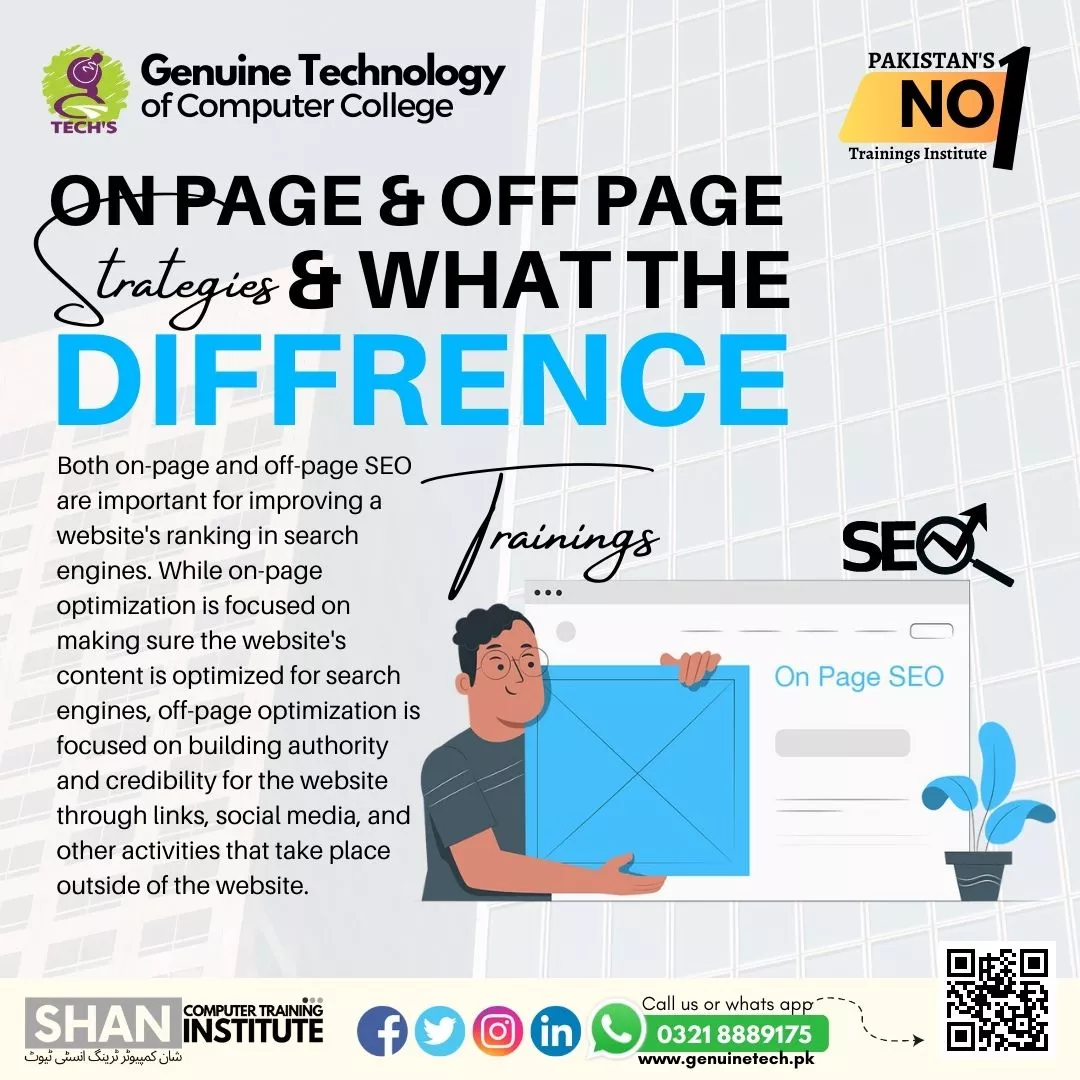The College > Blog > On Page Ranking Factors
On Page Ranking Factors
What are the on-page factors for SEO? - Shan Institute
Learn the On-page ranking factors by working on the real-world projects in SEO expert course in Lahore and optimize your website search engine and improve its visibility in search engine result pages (SERPs). Here is this On-page ranking factors SEO Course you can about the crawlers and how people search query on internet. Learn about the keywords and many more by working on real-world projects and assignments here we can discuss the most important On-page optimization ranking factor;
- The content of a webpage
- The Title tags in HTML
- Meta description short summary of a webpage content
- Header tag the organize the content on a webpage
- Keyword density
- Image optimization
- Internal linking
- Mobile Friendliness
- Page speed
- User Engagement
Genuine Tech is one of the Top Computer College known for their best computer courses and one of them high in demand is SEO course for optimization of websites and many more in this article we can discuss about the seo on-page optimization which is an essential part in ranking your website the first thing is the content of your website you learn to create authentic and relevant content and the next thing is the use of HTML tags essential for search engine optimization like heading tags, title tags and image alt tag for image optimization and many more all you can learn by working on real-world projects and assignments under the supervision of Umair Butt SEO specialist in Lahore, Pakistan.
Conclusion
In conclusion now in technology era every candidate learn the high in demand computer courses for earning money online and develop their own business and become successful these courses may include web development course, seo expert course and digital marketing course and Genuine Tech is one of the best hub for learning these high in demand computer course and earn money.
Read from ahrefs.com in detail about On-Page seo factors and their importance in website ranking.







